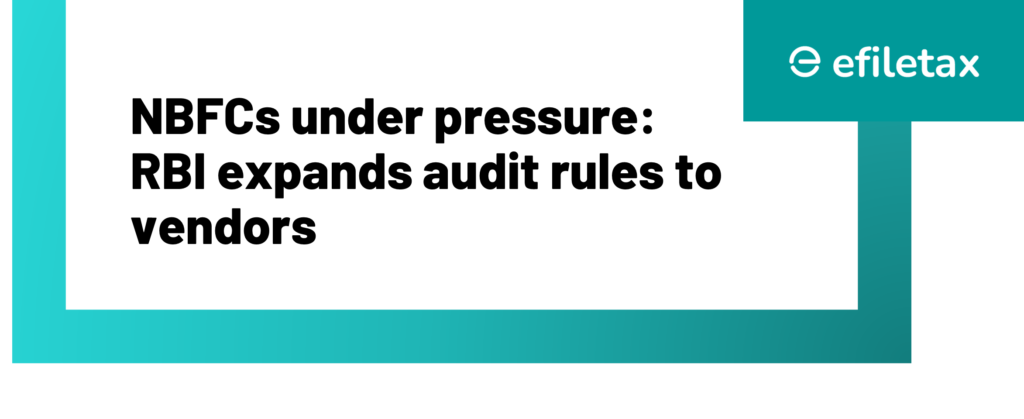
RBI expands NBFC audit rules to service providers: What it means for you
The Reserve Bank of India (RBI) has widened the scope of audits for Non-Banking Financial Companies (NBFCs). The new rules mandate that NBFCs must now include their outsourced service providers—such as IT vendors, loan recovery agents, and cloud providers—within the ambit of internal and statutory audits.
This marks a critical shift in RBI’s oversight strategy to mitigate operational risks, especially for large NBFCs and fintechs.
Why this move by RBI matters
RBI has observed increasing reliance on third-party vendors by NBFCs, especially in digital lending, KYC, data processing, and customer service.
Key risks include:
- Data breaches and cybersecurity lapses
- Mis-selling or coercive recovery tactics
- Lack of grievance redressal by third-party agents
To plug these gaps, RBI has made it mandatory to audit all material service providers.
Who is covered under the new audit scope?
NBFCs must now audit:
- Cloud storage and SaaS providers
- IT infrastructure & cybersecurity vendors
- Loan recovery agents and customer contact centers
- Digital lending and co-lending platforms
- KYC and onboarding partners
If a vendor performs “material outsourced activities,” they’re in.
RBI’s official view
As per the RBI press release dated April 16, 2025:
“All material outsourcing arrangements must be subject to periodic audits by internal and statutory auditors. NBFCs will be held responsible for any failure in outsourced services.”
Legal Framework Reference
The move draws strength from:
- RBI Master Direction on Outsourcing of IT Services, 2023
- NBFC-Scale Based Regulation (SBR) Framework
- Circular on Governance in NBFCs – DNBR (PD) CC.No.099/03.10.001/2019-20
This change is also in line with Section 45-IA of the RBI Act, 1934, which empowers RBI to regulate and inspect NBFC operations.
What NBFCs must now do
- Update audit charters to include vendor oversight
- Conduct vendor due diligence and risk classification
- Set clear SLAs & data sharing protocols with third parties
- Create vendor-wise audit trails
- Report lapses to RBI immediately
Failure to comply may invite regulatory penalties or restrictions on business operations.
Compliance is now end-to-end
“Earlier, audits stopped at the NBFC’s boundary. Now, your tech stack, call center, or API partner is also your audit liability,” says Abhinav Menon, compliance advisor at Efiletax.